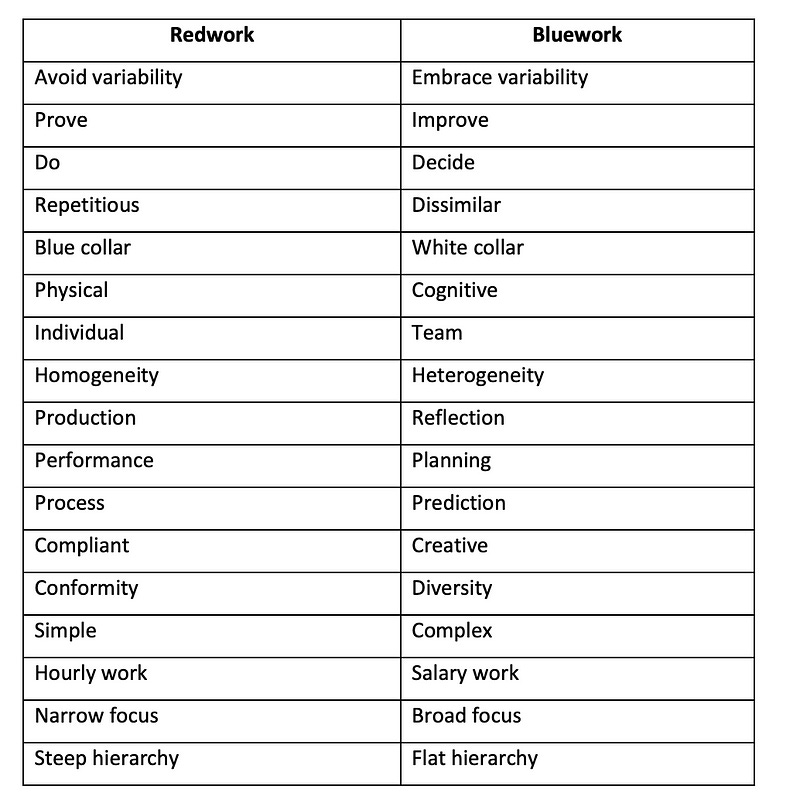Hi Everyone 👋🏻, welcome to my new blog. In this article, I will tell you about Leadership skills and critical points we need to keep in mind. So, without any further time delay, let’s get started!!
Leadership is a language that is hidden in communication.
The language is the starting point of all the positive changes that can occur in your team.
The language changed in three ways.
Replaced a reactive language of convincing, coercing, complying, and conform with a proactive language of intent and commitment to action
Replaced a language of proving and performing with a language of improving and learn
Replaced a language of invulnerability and certainty with a language of vulnerability and curiosity.
The more you talk, the less you are listening. If you want to hear more.Talk less first; then they talk more — David Marquet
1. Decision-making
Decision-making and execution require two different mental processes and two different kinds of language. Decision-making and thinking are called Blue Work, while implementation is called Red Work. We need a proper balance between blue work and redwork; the problem occurs when we do things without thinking.
We need to shift from rework to bluework more often to fix this.
When everyone is involved in decision-making, it is a win-win situation. The organization becomes more profitable, and employees feel fulfilled.
Doing is important, but action must be balanced with thinking. — David Marquet .
2. The mistakes are not a Death sentence:
As a leader, you should show your team members that a mistake is not a death sentence but a necessary part of learning.
Suppose you criticize or punish your team for making mistakes, In that case, eventually, they will be so afraid of making mistakes they stop trying new things, and accidentally you are killing the culture of innovation in the team.
Proper planning safeguards the team against the tendency to get carried away by the activities of a task while losing focus on another.
3. Good Leaders do not impose their ideas on their team members; they allow them to develop original ideas.
When leaders ignore the ideas of their team members and impose what they have already decided, this kind of behavior kills newly emerging leaders.
If you want to kill a leader, kill his opinion.
There are a few ways to fix this problem.
Ask for team voting so you can decide which ideas are better.
Be curious and what people think when they disagree with you
Scan those who are quiet and encourage them to speak up
Provide information about the consequences of a specific behavior.
4. Commit
Individuals make commitments. Groups do not. Commitments are personal; it comes from within.— David Marquet
Commit to learning, not just doing: An employee committed to learning does not need to prove anything but instead seeks to improve. It also prevents an adverse reaction to setbacks.
Commit actions, not beliefs: A significant mistake is trying to get people to make a sudden mindset change. Instead, commit actions. Allow people who disagree with an idea to hold to their ideas. The organization's goal is met as long as they commit to supporting its actions.
Chunk it small but do it all: Breaking up work into small pieces tends to reinforce the goals of an organization.
Give Information, not Instructions. : Instead of giving instructions, it is better to provide information and let people know of the consequences of their behavior and let them choose.
1) Instead of Park there, try I see a parking spot there.
2) Instead of Adding these stories, try The Product Owner has some new user stories for our product.
3) Instead of double checking the numbers, try it is important that these numbers are correct, and I see something does not add up for me.
5. Celebrations
At the end of every task, you must celebrate its completion.
There are four ways to effectively move from continuation to completion when working on a project :
In the Early stage of a project, ensure that there are longer learning periods. This means that there should be shorter periods of work. As the project progresses, there will be more work and less learning.
Appreciate instead of evaluate, observe instead of judge, and prize instead of praise.
The focus is on behavior, not characteristics because it can harm your team.
They focus on the journey and not the destination by paying attention to other people’s accounts of their work and trying to detect turning points in the process.
Appreciation empowers the recipients by stimulating learning and risk-embracing behaviors. It encourages them to put more effort into a new task.
6. Goal Settings
Good leaders should set specific goals that boost the performance of the team.
Leaders can focus on three factors when deciding the team goal
The balance between redwork and bluework.
Getting everyone involved in Thinking processes rather than leadership only.
Focus on the redwork period.
Conclusion
As a leader, it's your responsibility to establish a more beneficial communication system. Always remember that you control the clock and everyone needs to collaborate to achieve a goal.
It's your job to celebrate wins, pursue every team member's improvement and connect to them individually.
Thanks for Reading this …If you like it, please subscribe and follow me.









Great review!
I read this a few months ago and found it quite a hard read, but lots of interesting nuggets!!